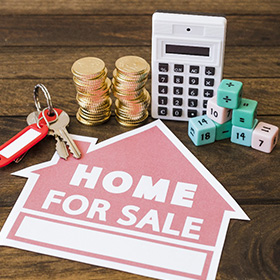What Happens if a Seller Lies on a Disclosure in Florida?
November 06, 2024
The success of a real estate transaction depends greatly on the transparency of sellers and buyers. The process involves the commitment of lawyers, realtors, lenders, and escrow companies, so sellers are entrusted with time and assets from different sources once they accept a purchase offer. Your assets and investments are obviously at stake, but any sign of deception will also affect your chances to be involved in later transactions.What's a Disclosure and How Does It Protect Buyers?
Bankrate aptly defines a seller's disclosures as a form of outlining a property owner's knowledge of any defects that may impact the property value or impact a new owner's safety and well-being once they move in. It lists several questions on issues that could potentially affect the decision of potential buyers. In other words, it's meant to reveal negative elements in the property that could affect its market value. The form in question not only looks different across different states; disclosure requirements also differ between the state and each county. It's up to real estate agents to assist buyers on issues they need to keep an eye on if they're not outlined on the seller's disclosure.
It lists several questions on issues that could potentially affect the decision of potential buyers. In other words, it's meant to reveal negative elements in the property that could affect its market value. The form in question not only looks different across different states; disclosure requirements also differ between the state and each county. It's up to real estate agents to assist buyers on issues they need to keep an eye on if they're not outlined on the seller's disclosure.In most cases, a seller's disclosure will include questions regarding:
- Damage caused by natural disasters like hurricanes, wildfires, earthquakes, etc. It will also ask about the seller's knowledge of the location and whether it's a high-risk area. Hurricanes and tropical storms are common in Florida, so you can expect a detailed clause focusing on this point.
- The neighborhood/community surrounding the property, including local laws regulating the use of territory. There are also questions regarding the disturbances caused by any businesses, factories, farms, or other entities operating in the area.
- The existence of a homeowner's association within the community and whether new homeowners are required to join said associations upon buying the property.
- Furniture and appliances that will remain in the house after the transfer and their overall condition. Sellers will also be asked to outline any issues affecting internal mechanisms like electricity, plumbing, ventilation systems, smoke detectors, etc.
- In relation to the previous point, seller's will be asked to disclose health and safety hazards caused by toxic substances, gas leaks, structural flaws, lead plumbing, etc.
- Information about deaths occurring inside the property or any other unsavory incidents.
- Information about areas in need of repairs (foundations, gardening, roof replacement, etc.) The property price is expected to reflect these defects, and buyers can choose to take over the repairs after settlement. If the home appraisal reveals that the issues are more severe than what's originally disclosed, buyers can also ask to revise the contract so that all repairs are done before the closing.
Sellers are expected to fill out the disclosure forms before listing their property in order to present it to the buyer as soon as the offer is accepted. This way, buyers will know of any problems before they sign the contract and transfer the earnest money.
Seller's Disclosure in Florida
As explained by Orsatti & Associates, P.A., there are no laws regulating the way a seller's disclosure is outlined in Florida, but sellers can still face legal consequences after lying/concealing information during the real estate process.The laws concerning seller's disclosure mostly focus on issues that could actively affect the homeowner's health and safety. For instance, Florida Statute §404.056(5), requires sellers to disclose environmental radiation caused by gas leaks and other factors. Meanwhile, Florida Statute §689.25 protects sellers from the obligation to reveal whether any deaths have occurred inside the property.
Do You Suspect a Seller of Lying? Know What To Look For!
 First of all, take your time reading through all the documents and any written disclosure forms provided by the seller. Ideally, this should save you a lot of time during the inspections since it's not always easy to look at every possible variable while perusing a property for the first time. If the seller hasn't offered information about a specific element you're worried about, don't be afraid to ask. You can glean a lot from their disposition to disclose more details.
First of all, take your time reading through all the documents and any written disclosure forms provided by the seller. Ideally, this should save you a lot of time during the inspections since it's not always easy to look at every possible variable while perusing a property for the first time. If the seller hasn't offered information about a specific element you're worried about, don't be afraid to ask. You can glean a lot from their disposition to disclose more details.Now, if you feel like the seller is withholding relevant information, your real estate agent is your best ally to craft a strong case. You can gather evidence from follow-up property inspections and look into the repair deadlines to see if the progress has been halted.
When buyers manage to prove any deception, sellers can be fined and even face a lawsuit, depending on the evidence at hand. There's a gray area where sellers might genuinely feel that certain details are not worth mentioning, but they should never feel entitled to avoid the buyer's questions just because there are no laws requiring a disclosure document.
What To Do After Closing?
In some unfortunate cases, faults on the title or the property itself can be discovered after the title transfer. These cases are few and far between given all the regulations in Florida's real estate landscape, but it's still important to know how to handle the fallout.Make sure to seek legal assistance upon discovering the deception and document all your findings as evidence. You don't have to bear the consequences of a fraudulent title just because you're the property's owner. Experienced legal counsel will help you prevent financial losses and even help you explore your options when it comes to compensation.
Complete your closing with a reliable title and escrow service. The specialists at Key Title & Escrow have an impeccable work ethic and this extends to providing the apt response in the event of deception from sellers. There's no better place to protect your best interests during the real estate process. Feel free to contact us via phone call at (305) 235-4571 or toll-free at (800) 547-0006 to get more information. You can also use the contact form on this page to get in touch with our staff, and we will not keep you waiting.







